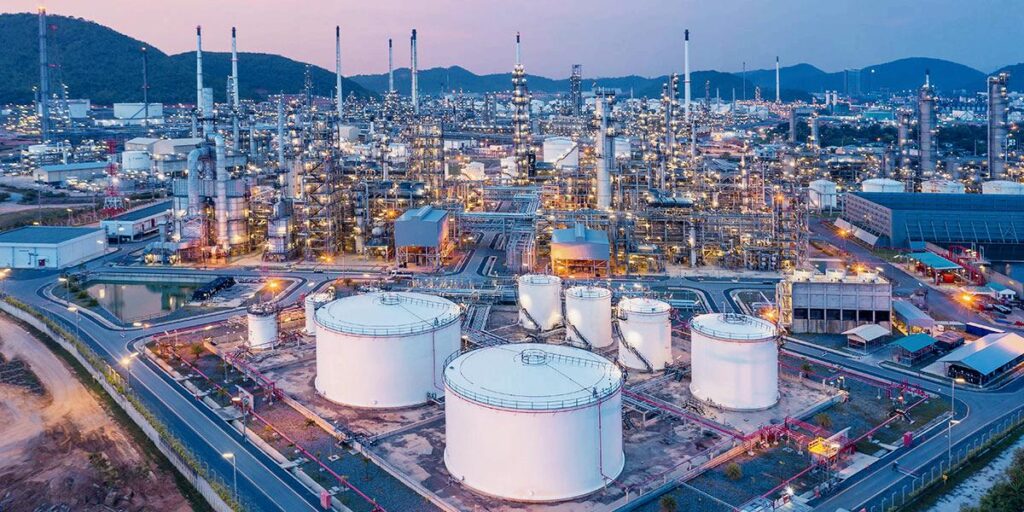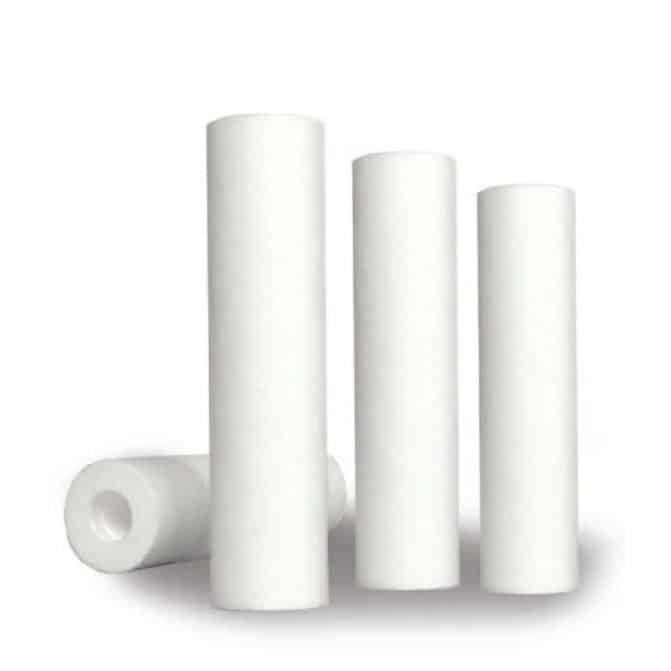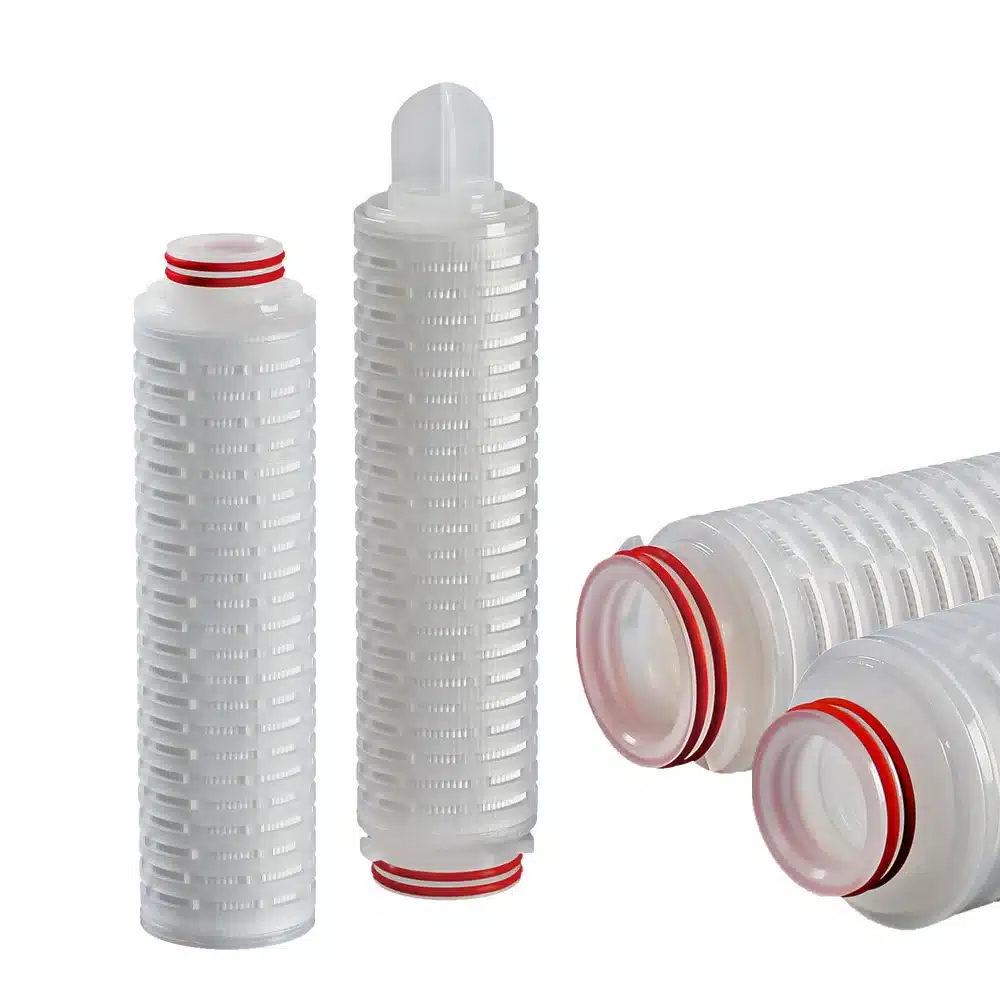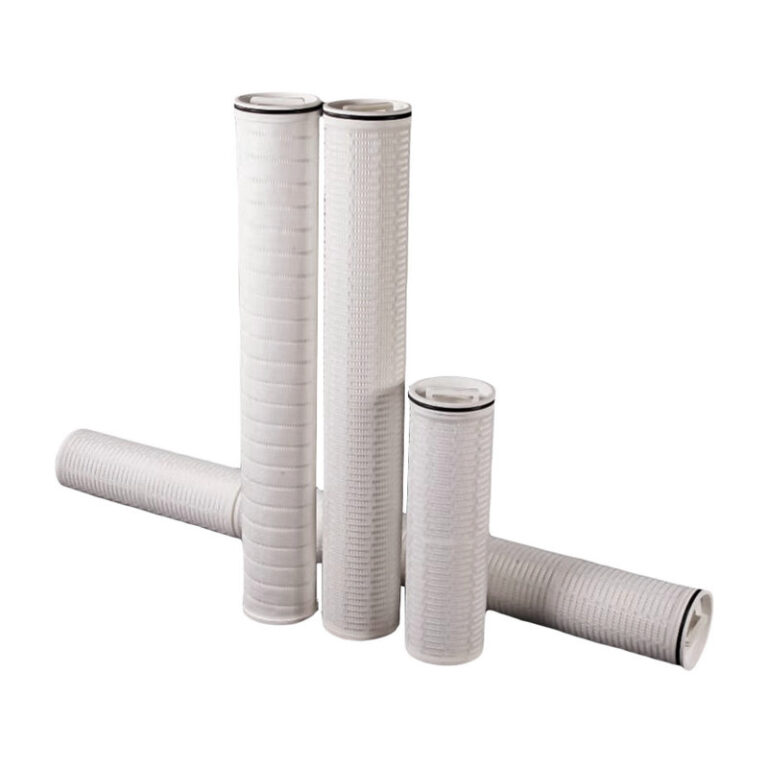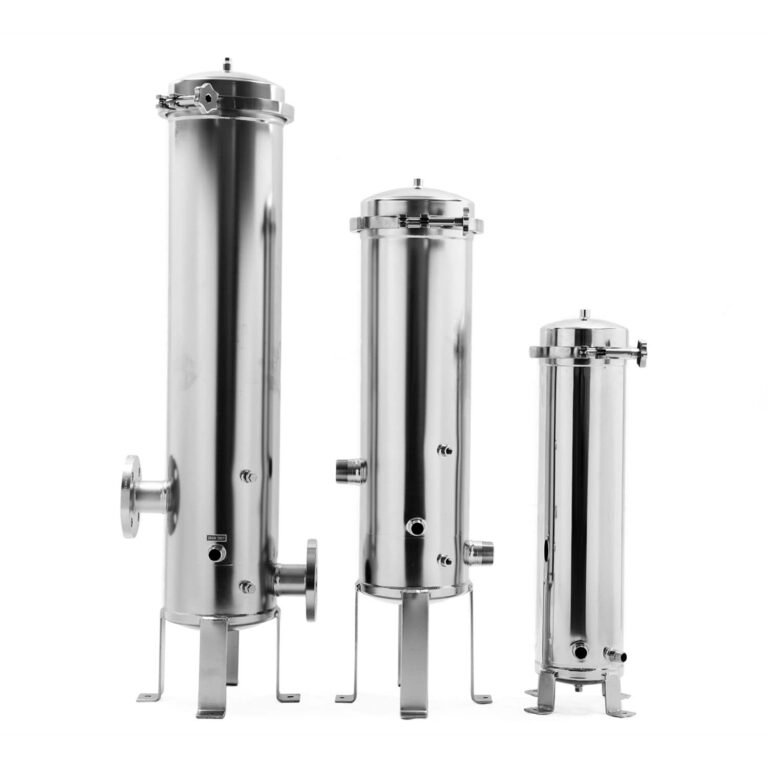The Role of Pleated Filter Cartridges in Petroleum and Chemical Industries
Introduction
The petroleum and chemical industries play a central role in powering economies, producing essential raw materials, and driving technological development. However, both sectors face significant challenges in maintaining high product quality, ensuring process efficiency, and protecting expensive equipment. Contaminants such as particulates, water, rust, and by-products can negatively impact operations, reduce system reliability, and compromise safety.
One of the most effective tools for addressing these challenges is the pleated filter cartridge. These advanced filtration devices are designed to handle the demanding requirements of petroleum refineries, petrochemical plants, and chemical processing facilities. Unlike conventional filters, pleated filter cartridges offer large surface area, high dirt-holding capacity, and consistent filtration performance, making them indispensable in industries where precision and reliability are non-negotiable.
This article explores the role of pleated filter cartridges in petroleum and chemical industries, examining the challenges these sectors face, the specific benefits pleated filters bring, their diverse applications, and best practices for implementation and maintenance.
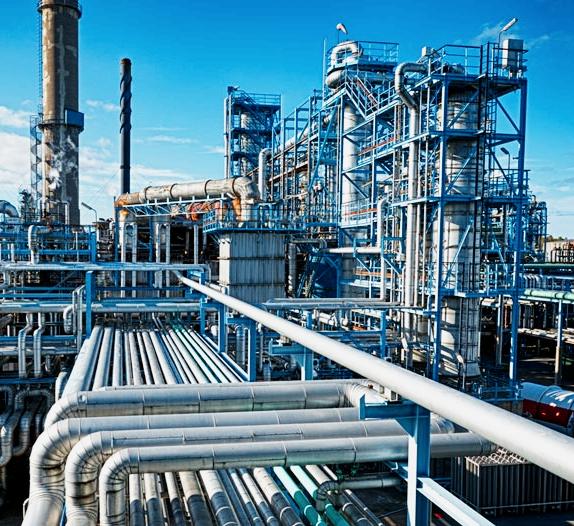
Key Challenges in Petroleum and Chemical Filtration
Filtration is an essential step in petroleum refining and chemical production. The complex nature of feedstocks, aggressive chemicals, and sensitive downstream processes makes it critical to remove contaminants effectively. The main challenges include:
1. Solid Particulate Contamination
Raw petroleum and chemical feedstocks often contain solid impurities such as rust, dirt, metal fines, or scale. These particles can cause abrasion in pumps, clog nozzles, and damage heat exchangers. If left unchecked, particulate contamination leads to increased downtime and costly equipment repairs.
2. Water and Emulsion Problems
In petroleum processing, water contamination is a recurring issue. Water can enter through crude oil transportation, condensation, or leakage. It can lead to corrosion, emulsification, and catalyst poisoning in chemical processes. While separation technologies such as coalescers and separators are used, pleated filter cartridges provide critical fine polishing to achieve desired water purity levels.
3. Chemical Compatibility
The chemical industry handles corrosive acids, solvents, and aggressive compounds. Standard filters often degrade quickly in such environments. Materials used in pleated filter cartridges, such as polypropylene, PTFE, and PVDF, are selected for their chemical resistance, ensuring durability and performance under extreme operating conditions.
4. High Flow Demands
Petroleum and chemical plants often operate at large scales with continuous high flow rates. Traditional filtration methods can cause bottlenecks. Pleated filter cartridges, with their larger surface area and low pressure drop, can handle high flow demands without compromising efficiency.
5. Protection of Critical Equipment
Downstream equipment such as membranes, catalysts, pumps, compressors, and reactors require protection from contaminants. Even small amounts of particulate or chemical impurities can reduce efficiency and shorten lifespan. Filtration using pleated cartridges ensures that equipment operates under optimal conditions, reducing the risk of costly failures.
Overview of Pleated Filter Cartridges
Pleated filter cartridges are cylindrical filtration devices constructed by pleating filter media to maximize surface area. This design allows them to capture a large amount of contaminants without sacrificing flow rate. Their flexibility in materials, sizes, and configurations makes them suitable for diverse petroleum and chemical applications.
1. Structure and Design
Filter Media: Typically made of polypropylene, polyester, nylon, PTFE, PVDF, or fiberglass, depending on chemical compatibility and operating conditions.
Pleated Design: Provides several times more surface area compared to depth filters, allowing higher dirt-holding capacity and longer service life.
End Caps and Seals: Made of compatible polymers or stainless steel to ensure secure installation and prevent bypass.
Micron Ratings: Available from coarse (100 microns) to fine (0.2 microns), enabling both sediment removal and microbial control where needed.
2. Operating Principles
Pleated filter cartridges work by trapping contaminants on the surface and within the pleated structure. Water, oil, or chemical streams pass through the pleated media, where particles and impurities are captured. The design minimizes pressure drop while maximizing flow and filter life.
3. Standards and Certifications
In critical industries, filters must comply with international standards for safety, performance, and compatibility. Pleated filter cartridges are often manufactured in accordance with ISO, FDA, or ASME standards, ensuring reliability in petroleum and chemical processes.
Performance Benefits of Pleated Filter Cartridges in Petroleum and Chemical Industries
Pleated filter cartridges offer multiple benefits that make them the preferred choice for demanding industrial applications.
1. High Filtration Efficiency
Pleated filter cartridges can achieve up to 99.9% efficiency in capturing particles of specified micron sizes. This ensures consistent quality in petroleum products and chemical outputs, reducing contamination risks.
2. Extended Service Life
Thanks to their pleated design, these cartridges hold significantly more contaminants before requiring replacement. This reduces downtime, labor costs, and frequency of filter changeouts, which is particularly beneficial in continuous processing plants.
3. Low Pressure Drop
Maintaining energy efficiency is crucial in large-scale industries. Pleated filter cartridges allow fluids to flow with minimal resistance, reducing pump energy consumption while ensuring stable operating pressure.
4. Versatility in Applications
Pleated filter cartridges can handle a wide range of fluids, from hydrocarbons and solvents to aggressive acids and alkalis. This adaptability makes them suitable across different units in petroleum refineries and chemical plants.
5. Equipment Protection and Reduced Maintenance
By removing harmful particulates, pleated filters safeguard expensive equipment, including catalysts, pumps, heat exchangers, and membranes. Reduced wear and tear translates into lower maintenance costs and longer equipment life.
6. Cost-Effectiveness
Although pleated filter cartridges may have a higher upfront cost compared to conventional filters, their extended lifespan, lower energy consumption, and reduced downtime make them cost-effective over the long term.
Applications in Petroleum Industry
The petroleum industry is highly diverse, encompassing upstream exploration, midstream transportation, and downstream refining. Each stage requires reliable filtration to maintain efficiency, protect equipment, and ensure final product quality. Pleated filter cartridges play an essential role across these operations.
1. Crude Oil Processing
Crude oil often contains sand, silt, rust, and water from extraction and transportation. Pleated filter cartridges are used to remove these solid contaminants before crude enters refining units. By preventing blockages and abrasion, they improve the longevity of pumps, valves, and distillation columns.
2. Fuel Production and Polishing
During fuel refining and blending, particulates and water must be removed to meet strict quality standards. Pleated filter cartridges polish diesel, gasoline, and jet fuel, ensuring that products meet specifications for clarity, stability, and safety.
3. Catalyst Protection in Refineries
Many petroleum refining processes, such as catalytic cracking and hydrocracking, rely on expensive catalysts. Even minor particulate contamination can poison catalysts and reduce efficiency. Pleated filter cartridges provide fine filtration to protect catalyst beds, extending their operational life and reducing replacement costs.
4. Produced Water Treatment
In upstream operations, large volumes of produced water must be treated before disposal or reuse. Pleated filter cartridges remove suspended solids and oil droplets, ensuring compliance with environmental regulations. Their ability to handle high flow rates makes them well-suited for offshore platforms and onshore facilities.
5. Pipeline and Terminal Operations
During crude and product transport through pipelines, corrosion, rust, and particulates can accumulate. Pleated filters are installed at terminals and loading facilities to remove these impurities, preventing damage to downstream systems and ensuring clean transfer to storage tanks.
Applications in Chemical Industry
The chemical industry produces a vast range of products, from plastics and fertilizers to specialty chemicals and pharmaceuticals. In each of these processes, filtration is vital for product quality, process safety, and environmental compliance.
1. Bulk Chemical Production
In the production of acids, alkalis, and solvents, impurities can compromise chemical purity. Pleated filter cartridges remove particulates and ensure that chemicals meet required purity levels. For example, in hydrochloric acid or sulfuric acid production, filters prevent scale and residue from contaminating storage and distribution systems.
2. Specialty Chemicals
High-value specialty chemicals such as adhesives, coatings, and additives require extremely precise filtration. Pleated filter cartridges with fine micron ratings (1–5 microns) provide the level of precision needed to ensure consistency and prevent contamination in final products.
3. Polymer and Resin Production
Polymerization processes are sensitive to contamination by particles or gels. Pleated filters ensure uniformity in polymers and resins, improving product quality and reducing downstream defects.
4. Pharmaceutical Intermediates
In chemical plants supplying intermediates for pharmaceuticals, pleated filter cartridges are used to remove fine particulates and bacteria, ensuring compliance with stringent pharmaceutical standards. This application often requires pleated cartridges made from FDA- or USP-approved materials.
5. Water Treatment in Chemical Plants
Water is used extensively for cooling, heating, and as a raw material in many chemical processes. Pleated filter cartridges are employed to treat process water and boiler feedwater, preventing scaling, fouling, and contamination that can disrupt operations.
Best Practices for Using Pleated Filter Cartridges
While pleated filter cartridges offer numerous benefits, their performance and longevity depend on proper implementation and maintenance. The following best practices help maximize efficiency and cost savings:
1. Conduct Water and Fluid Analysis Before Selection
Not all contaminants are visible. Detailed analysis of feedwater, crude oil, or chemicals helps identify the exact size and type of impurities present. This allows operators to choose the correct micron rating and filter media.
2. Use Proper Housing and Sealing
Pleated filter cartridges require housings that can withstand pressure and chemical exposure. Proper sealing ensures that contaminants cannot bypass the filter. High-quality housings with robust O-rings and gaskets are essential.
3. Monitor Differential Pressure
Filters should be replaced when differential pressure reaches manufacturer-recommended limits. Running filters beyond this point can cause rupture, bypass, or reduced efficiency. Automated monitoring systems can provide real-time alerts.
4. Establish Preventive Maintenance Programs
Instead of waiting for system failure, operators should implement preventive replacement schedules. This minimizes downtime and ensures consistent product quality.
5. Train Personnel on Handling and Installation
Incorrect installation can compromise filter performance. Training staff on proper handling, storage, and installation techniques prevents contamination and ensures reliable operation.
Future Trends in Filtration Technology
As petroleum and chemical industries evolve, filtration technology continues to advance to meet new challenges. Emerging trends include:
1. Advanced Filter Media
Nanofiber and hybrid filter media are being developed to enhance filtration efficiency, chemical compatibility, and dirt-holding capacity. These innovations will further extend the life of pleated cartridges.
2. Smart Monitoring Systems
Integration of sensors and IoT technology allows real-time monitoring of filter performance, pressure drop, and contaminant load. Predictive analytics can forecast replacement needs, reducing downtime.
3. Sustainability and Recyclability
With industries aiming to reduce environmental impact, filter manufacturers are exploring recyclable materials and reusable pleated filter designs. This trend aligns with global sustainability goals.
4. Customized Filtration Solutions
Instead of one-size-fits-all designs, customized pleated filter cartridges are being developed for specific processes, optimizing efficiency and lowering operational costs.
5. Integration with Membrane Systems
As membrane technologies gain popularity in both petroleum and chemical sectors, pleated cartridges are increasingly used as prefilters to extend membrane life and improve overall system reliability.
Conclusion
The petroleum and chemical industries operate under some of the most demanding conditions, where efficiency, reliability, and safety are paramount. Contaminants in crude oil, fuels, solvents, and chemicals can cause severe damage to equipment, reduce product quality, and increase operational costs.
Pleated filter cartridges play a critical role in solving these challenges. Their high efficiency, extended service life, low pressure drop, and versatility make them an essential component in refining, chemical production, water treatment, and equipment protection. By following best practices in selection, installation, and maintenance, operators can maximize their benefits and ensure continuous, cost-effective operation.
Looking ahead, innovations in filter media, smart monitoring, and sustainable materials promise to further enhance the role of pleated filter cartridges in petroleum and chemical industries. Whether it is protecting catalysts in refineries or ensuring purity in specialty chemical production, pleated filters remain an indispensable tool in achieving operational excellence.

